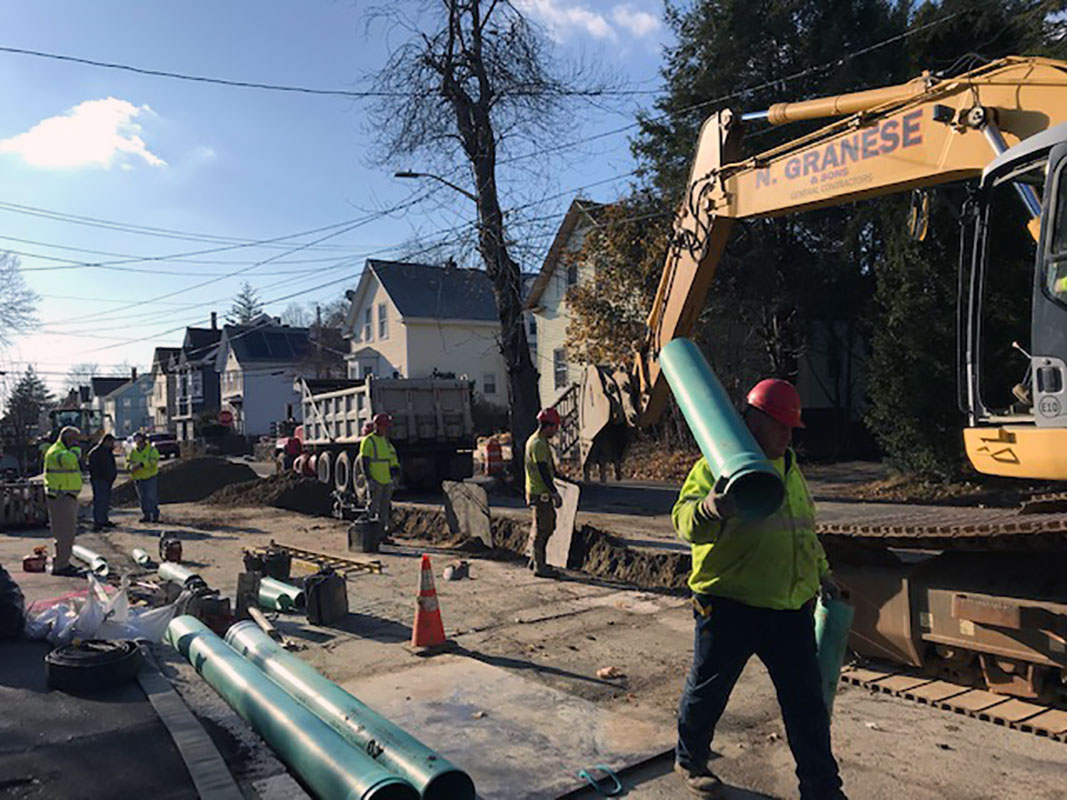Haverhill expects reduced borrowing costs and loan forgiveness as it tackles a variety of water and sewer projects, including a $26.7 million project to separate a combined sewer overflow near downtown.
The state declared Haverhill eligible Monday for a reduced 1.5% interest rate and grants to take the pressure off ratepayers. Interim Public Works Director Robert E. Ward told WHAV the city still has a few steps to take, but construction is scheduled to begin next year.
“It’s a good boost to get some of these bigger projects started that we’ve had kicking around for a long time,” he said.
Wastewater projects, covered under the state’s Clean Water State Revolving Fund, include $48.9 million for wastewater treatment plant upgrades, $26.7 million for the Locke Street Sewer Separation Project, $7 million to close the northern mound at the city’s former Groveland Road landfill; $1.9 million for Coffin and Hanover pump station upgrades and $1.1 million in various sewer collection system upgrades. The Trust is a joint effort of Department of Environmental Protection, Executive Office of Administration and Finance and the state treasurer’s office.
Old combined sewer overflows—CSO, for short—are blamed for allowing stormwater into sewer systems, overwhelming treatments plants and allowing sewage to enter the Merrimack River untreated.
Under the Drinking Water State Revolving Fund, Haverhill is eligible to borrow $5.8 million for transmission main improvements. Ward explained these include cleaning and lining larger, 20-inch mains and replacing “very old” undersized water mains.
Both accounts are administered by the Massachusetts Clean Water Trust. The standard revolving fund interest rate is 2%, but Haverhill, Lawrence and Andover are among 28 communities getting an additional .5% discount because they support the state’s Housing Choice Initiative.
“The State Revolving Fund loan program assists communities and water utilities by updating their water infrastructure, investing in energy efficiency and renewable energy at treatment facilities and addressing the problem of emerging contaminants in our drinking water,” explained Energy and Environmental Affairs Secretary Beth Card. “These efforts make the delivery of local water resources more sustainable, reliable and affordable.”
About 30% of a community’s energy use comes from water treatment. State Department of Environmental Protection Commissioner Martin Suuberg said, “When we upgrade treatment plant equipment and processes or install renewable technologies, these facilities become more energy efficient, reduce air emissions, save communities money and, ultimately, better protect our natural resources.”
To remain eligible and benefit from double loan forgiveness ins some cases, Ward said, Haverhill must approve a loan order by June 30, complete designs by October and solicit contractor bids.
Besides Haverhill, the Greater Lawrence Sanitary District is eligible to borrow $54.3 million for its North Bank Interceptor CSO Storage Facility and $19.2 million for, what are called, Climate Resiliency Improvements. Methuen expects to use $200,000 for its Asset Management Plan.

